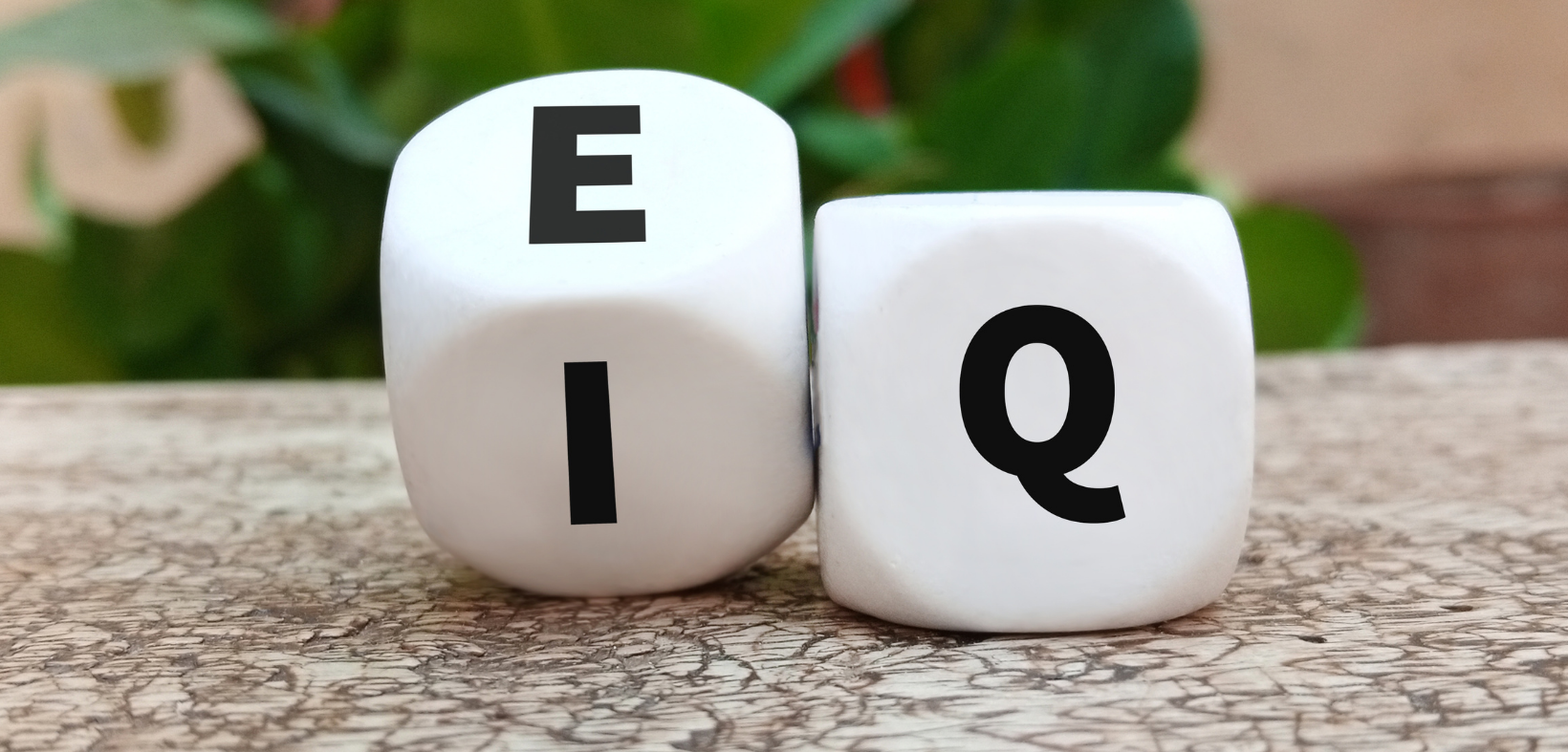On a recent coaching call, my client admitted that he “lost it” with one of his team members while reviewing a project plan. “I knew it the minute I raised my voice that this was not the way to increase influence with my team,” he told me. “But I continued anyway!”
We all have moments at work and at home where people or events can trigger an emotional response. Our EQ is showing before we know it, and it’s not helping our reputation as a leader.
Is it IQ or EQ That Makes the Leader?
Daniel Goleman, a pioneer in the study of Emotional Intelligence, is quoted in the Harvard Business Review saying, “The most effective leaders are all alike in one crucial way: They all have a high degree of what has come to be known as emotional intelligence. It’s not that IQ and technical skills are irrelevant. They do matter, but they are the entry-level requirements for executive positions.”
Can you grow and improve your EQ? Goleman’s research highlighted five elements that define your Emotional Intelligence: Self-Awareness; Self-Regulation; Motivation; Empathy, and Social Skills. You absolutely can improve your EQ, and it all starts with self-awareness.
Becoming More Self-aware
I have written about self-awareness before, but suffice it to say that you must become a student of yourself to have a high level of EQ. Pay attention to your behaviors and your effect on other people. How do others react to you? What is it like to be led by you? Self-aware leaders not only manage their own emotions, but they recognize and interact well with the emotions of others.
Are You Teachable?
Another characteristic of leaders with high emotional intelligence is they are teachable. Teachable leaders have a level of humility about them, and they value what they can learn from others. Instead of reacting to emotional displays by others that may seem argumentative, emotionally intelligent leaders respond, usually with a question, to learn more about what is actually going on.
Please, You Go First
High EQ leaders have a quiet confidence about their skills and abilities that allows them to let others shine and be recognized. They do not need to be the center of attention. They readily include others in the spotlight.
Empathy vs. Sympathy
High EQ leaders choose empathy over sympathy. Empathy is born out of your self-awareness. The more self-aware you are, the easier it is for you to feel with someone, not feel for someone. The unaware leader will use sympathy to place themselves in a superior position, feeling sorry for the other person’s situation. A self-aware leader will put themselves in the other person’s shoes and come alongside them in the struggle. An empathetic leader’s favorite words are, “me too.”
My coaching client was able to catch himself in the middle of his emotional outburst and recover the relationship and solve the issue that caused the outburst in the first place. Knowing yourself and choosing to value others is an excellent start to developing a strong emotional intelligence and increasing your influence as a leader.
Perry Holley is a coach and facilitator with the John Maxwell Company’s Corporate Solutions Group as well as a published author. He has a passion for developing others and seeing people grow into the leaders they were intended to become.

